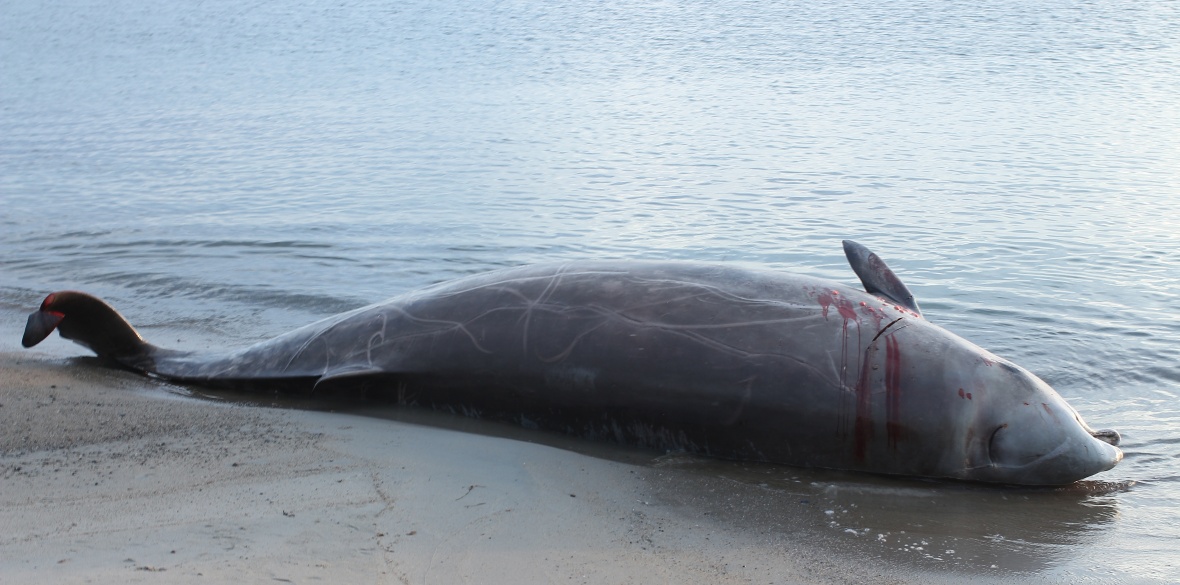This is the last article you can read this month
You can read more article this month
You can read more articles this month
Sorry your limit is up for this month
Reset on:
Please help support the Morning Star by subscribing here
LAST week I told the remarkable tale of an Arctic beluga whale which turned up at Tilbury on the Thames. It is still living there as I write this, seven days later. And it shows no signs of moving on at any time soon.
Should the animal manage to make its way from the Thames, it will need to avoid being hit by passing shipping both in the busy Thames itself and the Channel, which has some of the busiest shipping lanes in the world.
Getting back to its home in the Arctic will not be easy, but it did manage exactly the same thousands of miles journey in the other direction to get here.
While we were all smiling at the whale in the Thames, marine mammal scientists had something much more serious to investigate.
Why had 75 deep-water whales washed up on Scottish and Irish coasts during August and September? Most are Cuvier’s beaked whales, which are among the deepest-diving whales on the planet.
Nearly 50 badly decomposed beaked whales were washed up on Hebridean islands such as North and South Uist and Tiree. Twenty-two more ended up on beaches on the west coast of Ireland and one in Northern Ireland.
It seems highly unlikely that the whales died of any infectious disease. More and more evidence points to increased military activity in the east Atlantic as the cause of death.
Undersea war games use loud sonar to trace submarines. These may frighten whales to the surface too quickly.
Some will have dived to as much as two miles beneath the surface. Any too rapid rise to the surface can cause decompression sickness, or the bends, just as it can human divers.
There are concerns that the whales being washed up are just a small part of a huge number of whale deaths. The whales that reached land were very badly decomposed, often no more than skin and bones with not enough flesh for meaningful diagnosis.
Without blood or blood vessels there was no way to check for the characteristic bubbles in the blood that are the certain sign of decompression sickness.
Cuvier’s beaked whales are much less well-known than other whales. They can grow to five or six metres long and weigh up to two tons.
They live very secretively off the edge of the continental shelf and dive down to great depths, up to two miles, and can spend more than two hours at those great depths.
At the beginning of August pilots flying above remote Irish beaches were reporting large mystery mounds of dark rotting matter.
Irish researchers on the west coast of Donegal and Mayo investigated these reports and discovered those mystery mounds were in fact badly decomposed beaked whales that had been washed ashore. Then the same thing started to happen on remote Scottish beaches, including Hebridean islands such as the Uists and Tiree.
In just the few weeks since this August at least 50 were discovered on the Scottish coast and at least a score in Ireland. This was more than the entire total of beached whales in all of Britain over the last decade.
So why is it happening? Sadly most corpses have been washed up in an extremely decomposed state, often just bones, so it is difficult to carry out a detailed post-mortem. However the pattern of the stranding seems to suggest infectious disease was not a likely cause.
Whales have evolved in a quiet environment, using sound to forage for food, to communicate and for sometimes very sophisticated navigation.
Now oceans are really noisy places with underwater prospecting for oil, gas and valuable minerals as well as shipping noises. War games in particular use loud active sonar to locate submarines.
The whales are sensitive to mid-range sonar, which is used quite extensively by the military both to navigate and search out other craft.
Have there been war games in the east Atlantic recently? Almost certainly, but strangely neither Britain’s Royal Navy, the Nato fleet, the Russian navy, the Chinese navy, nor High Admiral of the US Fleet Donald Trump send this humble Morning Star columnist a full list of top secret military exercises regularly. I’ve asked, I’ve asked.
A spokeswoman for the British MoD stated: “The Royal Navy takes its responsibilities in safeguarding the environment very seriously and, when at all possible, operators take avoidance actions should animals be detected before or during sonar operations.
“Our precautionary practices are similar to those used in other marine industries and are regularly reviewed by statutory bodies to ensure they reflect the latest understanding of the marine environment and the effects of sound on it.
“To remain effective elements of UK defence, Royal Navy units need to operate flexibly in locations around the UK and the world.”
I guess the Whitehall wordsmiths would say that, wouldn’t they?
A similar incident has happened before, this time in the Canaries where a whale washed ashore about a week or two after a sonar exercise. The whale showed signs of decompression sickness.
The response of this stranding was for the Spanish government to ban sonar within 50 nautical miles of the coast. Result? No more beached whales.
Meanwhile, as more and more decomposing whales are found on our beaches, the Scottish and Westminster governments have ordered a full investigation, but I don’t think even a whale that can dive two miles down for two hours should hold its breath for the results.








